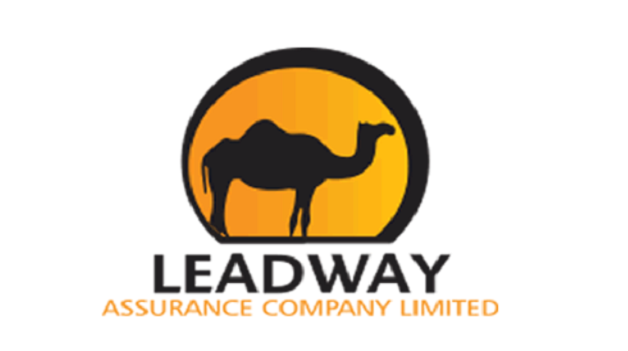E-Financial
Banks Must Embrace NextGen Solutions to Meet Customers’ Demands

By Dean Baker, Squad Lead, BFSI from Infobip
South African banks have weathered rough seas during the past year, with many of their customers coming under severe pressure from a stagnant economy, rising cost of living and high interest rates. Despite these storms, the financial services industry is still delivering good profits and growth, but there is constant pressure to maintain these results amid the adverse market trends and pressures that are currently shaping the landscape.

While South Africa’s established banks and financial institutions remain the powerhouses in the banking space, new entrants in the market are making a name for themselves in both the high and low Living Standards Measure (LSM) brackets. Some are making inroads in traditional markets and while others are looking to disrupt the underserviced digital space.
This has led many banks and financial institutions to look at achieving agility and to transform several of their strategic imperatives, such as how to become a more customer focused enterprise, how to adopt new operating models quickly and effectively, and how to optimise risk and compliance while doing that.
Opportunities are available for financial institutions wanting to explore the market and reinvent their enterprise to increase their relevance for their customers. However, these organisations need to embrace emerging technologies that make it possible for them to strengthen their digital core and leverage the power of cloud, data and Artificial Intelligence (AI) in order to reach new performance frontiers.
Technology now an enabler
Technology – once viewed as a disrupter – is now an enabler that helps organisations to enhance their productivity, transform the cost of structures, engage with customers in novel ways and develop completely new propositions.
As a consequence, the banking and financial services industry as a whole is being transformed by technology advancements, changing customer preferences and nimble new players.
At the same time, one of the biggest challenges that traditional banks still face is trying to adapt to the high costs in the industry, including that of maintaining physical branches. A number of organisations are thus looking to transform the engagement with their customers and are seeking to bring efficiencies into their branches.
Despite these challenges, Africa is still one of the few places in the world where significant changes have taken place over the past few years, in some cases more so than in developed countries. According to market research, the growth in mobile banking in parts of Africa is among the fastest in the world.
This is because customers are expecting more from financial institutions and are clamouring for a superior cross channel experience, coupled with hands-on guidance and personal intervention when required.
Beyond the product
These heightened customer demands will require financial organisations to go beyond the product and facilitate the customer journeys and create customer experiences that are data-driven, consistent across customers’ channels of choice and complete with personalised engagement.
Essentially, we are entering the age of the conversational transaction where more and more communication apps are becoming part of bank customers’ end-to-end experiences. Behind customer demands are a number of accelerators driving this new technological transformation. These include hyper-personalisation, automation and 24/7 availability, as well as technological shifts towards the use of Digital channels, AI-driven tools (including chatbots and self-service), rich messaging apps and upgraded legacy voice/video channels.
Other accelerators include substantial increases in cloud contact centre interactions, chat apps being used as key channels for marketing, sales and support, and year-on-year growth in the use of digital channels (for example WhatsApp and RCS) for customer communication.
The data-driven journey can be summed up as one of continuous awareness creation and engagement through personalised recommendations based on profile scoring, to stimulate consideration and transaction with ongoing customer care and retention. This includes seamless agent intervention and handover when needed, ultimately creating loyalty with the drive and aim to increase customer lifetime value.
E-Financial
Leadway Partners Firm to Launch Retail Insurance Product for Women

In line with passion and aspiration of the National Insurance Commission (NAICOM) to achieve financial inclusion among Nigerians especially Nigerian women, Leadway Assurance, has partnered with Wafira Ntaba Limited a marketing firm to launch a bespoken insurance policy for Nigerian women.

The product, Leadway Plan B Insurance policy, comes in simplified and affordable packages for as low as N26,000 per quarter, broadening financial inclusion and income protection for women-led small to medium-sized enterprises and lifestyle protection for women across different social strata in Nigeria.
Speaking at the media launch of the product, Leadway ‘s Director Sales, Retail and Partnership, Kike Fischer, shed light on the market approach for the Plan B product, saying “one uniqueness of the Plan B product is in its single-wide coverage from risks and perils related to auto insurance, healthcare, personal accident, fire, burglary, life insurance and education cutting across its different product packages – SME, Corporate and Premier packages.”
Also speaking, the visioner behind the Plan B Insurance for Nigerian women, Ayona Aguilera Trimnell shared the inspiration behind the products saying, “Plan B is an idea that has been in development for 10 years.
“As I began exploring insurance products aimed at women in other countries, I recognised the need for an insurance product that promotes financial inclusion in Nigeria, specifically for women. I believed we could create something that addresses their unique concerns.
Women need to understand how insurance can alleviate their worries and the benefits of being insured. I have personally enjoyed the advantages of insurance for over fifteen years, and I believe other women should have the opportunity to experience the same benefits.”
She said both partners could simplify the benefits of the plan B insurance product to help even the uneducated, understand and be convinced to secure their future by becoming a policyholder.
According to her, it has been proven and tested that women too buy insurance, but more women need to be aware and get insured.
On the market approach for the Plan B product, she said she was confident that these products would help women of all classes in Nigeria create and protect wealth, recover from economic challenges, pursue their purposes, and lead their families with peace of mind.
E-Financial
Sage Grey Finance Partners with Bank of Industry to Empower MSMEs in Nigeria

Sage Grey Finance Limited has joined forces with the Bank of Industry to provide accessible and affordable financing solutions for Micro, Small, and Medium Enterprises (MSMEs) in Nigeria.
This partnership, announced in Lagos, aligns with the Federal Government’s MSMEs Fund and aims to bridge the $236 billion funding gap faced by small businesses, fostering economic growth and job creation.
Eligible MSMEs can access loans of up to ₦5 million at a competitive 9% annual interest rate, with loan processing completed within five working days.
The initiative also includes SME advisory services to equip businesses with tools for sustainable growth.
Executive Director Jumo Atiba emphasized the critical role of MSMEs in national development, highlighting the partnership’s potential to stimulate entrepreneurship and unlock grassroots economic potential.
This collaboration reflects Sage Grey Finance’s commitment to financial inclusion and sustainable development.
The partnership builds on Sage Grey’s history of impactful initiatives, including a $200 million gas processing plant project and youth empowerment programs.
By addressing the challenges of financial exclusion, this collaboration is set to drive inclusive economic progress across Nigeria.
E-Financial
Four Red Flags Nigerians Ignored until CBEX Crashed- DUBAWA

It has not been a pleasant week for thousands of Nigerians who have again fallen for another money scam.

According to DUBAWA, a West African independent verification and fact-checking project, several persons on various social media platforms have begun to count their losses as CBEX, a popular digital asset trading platform, reportedly wiped out over N1.3 trillion from Nigerian investors’ accounts.
The platform collapsed after funds disappeared from users’ wallets, withdrawals were postponed, and communication channels were locked.
Taiwo Owolabi, a security analyst, recently released an analysis showing how investors’ funds were diverted through funnel wallets and finally into a central wallet, which now holds a total of $857 million in USDT.
The security expert concluded that CBEX was just another Ponzi scheme.
When CBEX promised a mouth-watering 100 per cent return on crypto investments in 30 days, many Nigerians rushed to invest just like they did with the defunct MMM.
However, despite the crash, CBEX has asked some investors to pay $100 and $200 verification fees to access partial withdrawals.
Now that the chips are down, it’s time to ask: “How did we not see this coming?”
Below are four red flags about CBEX that investors ignored.
- No regulatory approval
CBEX operated without registration or approval from the Securities and Exchange Commission (SEC) or the Central Bank of Nigeria.
Still, many Nigerians invested, assuming legitimacy because the platform looked flashy. This has become a pattern, as in previous cases where Nigerians got duped, the platforms were unregistered.
SEC has since warned Nigerians against investing in unregistered online forex and digital asset platforms, saying that operating such businesses without registration is now illegal under the new Investment and Securities Act (ISA).
Lesson: Always verify a platform’s regulatory status before putting your money in.
- Anonymous founders
CBEX’s website and Application did not list identifiable owners or executives. To gain credibility, CBEX masqueraded as a crypto platform, talking about “blockchain,” “trading bots,” and “AI-powered systems.” However, it had no verifiable trades or links to legitimate crypto exchanges. It used tech jargon to mislead its users.
Lesson: Transparency is a minimum requirement. If you don’t know who runs it, don’t trust it.
- Unrealistic returns on investment, withdrawal issues
While there is no ideal return on investments (ROI), excessively high ROIs or ones that appear too good to be true are usually a call for caution.
CBEX promised investors returns of up to 100 per cent in 30 days. That looks like a classic Ponzi red flag.
As seen in the past, these kinds of returns are unsustainable, but they remain effective bait that can appeal to anyone’s greed.
At first, CBEX worked. Users were getting paid even though Owolabi claimed the platform initially used one investor’s money to pay another until it could not.
Just before the crash, many users reported delays in withdrawing their funds. CBEX blamed this on “system upgrades” and “network issues,” which is a tactic common with failing schemes.
Lesson: High, guaranteed returns are a red flag, and consistent withdrawal delays indicate that the system is drying up. That’s usually when the exit strategy begins.
- Influencer endorsements and peer pressure
The Fear Of Missing Out (FOMO) does not respect age, especially when influencers, friends, and families are involved. However, the misuse of trust through misinformation is common in fraud schemes.
CBEX’s biggest marketing weapon was social media hype and word-of-mouth pressure. The platform relied heavily on trust networks.
From WhatsApp statuses to Facebook pages and TikTok videos, CBEX grew viral through a coordinated network of testimonials. People shared real and fake proof of payment screenshots and emotional success stories.
When friends and family members innocently vouched for it, people ignored other red flags and pumped money into the scheme.
Lesson: Social proof is not due diligence. Always investigate platforms independently, even if people you trust are involved.
Conclusion
CBEX’s collapse is not new; unfortunately, it may not be the last. DUBAWA urges investors to adopt a fact-checking mindset when approached with financial opportunities. Scams thrive on ignorance and trust. Our best defence is verification, not hope.
DUBAWA is a West African independent verification and fact-checking project, initiated by the Centre for Journalism Innovation and Development (CJID) and supported by the most influential newsrooms and civic organisations in West Africa to help amplify the culture of truth in public discourse, public policy, and journalistic practice.
It has a presence in Nigeria, Ghana, Sierra Leone, Liberia and The Gambia.

 General News2 days ago
General News2 days agoWorld Bank Announces $800m Support for Nigeria’s CCT Initiative

 General News3 days ago
General News3 days agoSanwo-Olu, Others Grace Launch of 50-Bed Hospital in Surulere by Avon Medical

 E-Financial3 days ago
E-Financial3 days agoCBN Pumps in Additional $150m into Forex Market to Safeguard Naira

 E-Financial3 days ago
E-Financial3 days agoSEC Says CBEX, other Unregistered Digital Platforms are Illegal

 Telecom3 days ago
Telecom3 days agoMTN, Meta Partner to Enhance Voice and Video Calling Quality

 Broadcasting3 days ago
Broadcasting3 days agoKONFAM 89.5 FM Hits Airwaves in Lagos Tomorrow

 E-Business3 days ago
E-Business3 days agoSERAP Calls for Withdrawal of Nigeria’s Data Act Amendment

 E-Financial3 days ago
E-Financial3 days agoKenyan CBN Okays Access Bank Full Acquisition Of NBK
























